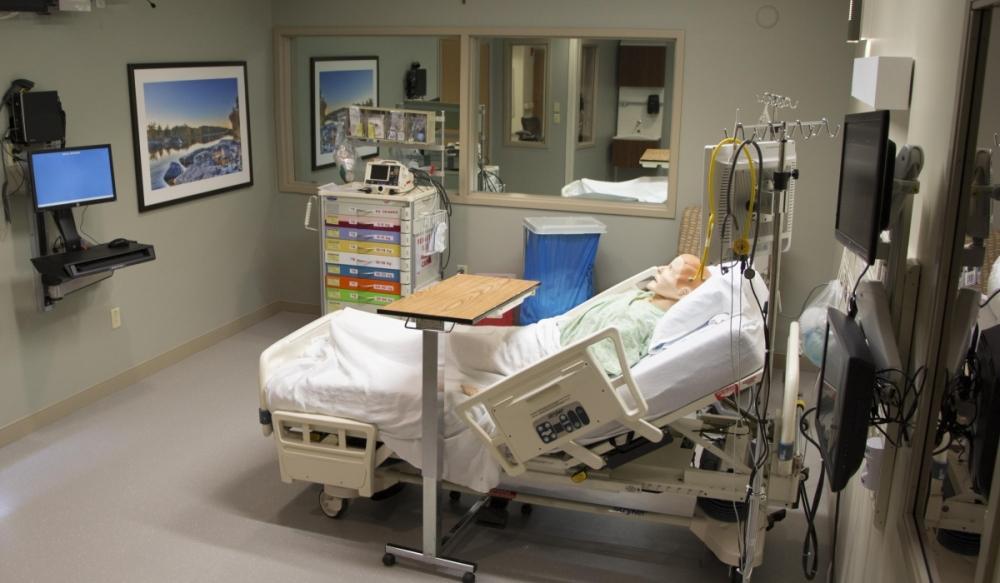Africa-Press – Rwanda. Digital innovation is transforming the way maternal and newborn health is delivered in Rwanda, enabling health workers to detect risks early, enhance care, and reach women in remote areas.
Technologies such as artificial intelligence, telemedicine, and mobile health tools are helping close long-standing gaps in access to safe and timely care. One initiative called the ‘Virtual Hospital’ allows hospitals and specialists in different parts of the country to monitor expectant mothers most at risk to prevent deaths.
Although Rwanda has reported declines in maternal and newborn deaths, this is still a serious concern.
According to the Ministry of Health, more than 200 mothers died during childbirth in the year 2024-2025, down from about 300 the previous year. Around 3,000 newborns lost their lives in the same period.
“These numbers might look small when compared to other countries, but even one mother dying while giving birth is a big problem,” Dr Muhammed Semakula, the Permanent Secretary at the Ministry of Health, said during the Africa HealthTech Summit held in Kigali on October 14.
“There are many causes, such as limited access to care, delays in seeking help, and lack of awareness, but new approaches are helping us act faster and save lives.”
Semakula explained that Rwanda no longer waits for years for national surveys to understand what is happening in maternal health care. Digital systems provide real-time information from hundreds of health facilities countrywide, allowing easier monitoring and faster response to critical cases.
“The Ministry of Health is also using digital tools to identify pregnant women who are likely to face complications. We can tell when a pregnancy may be at risk and make sure that the woman gets extra attention. This approach has helped us protect both mothers and babies.”
He said the “Virtual Hospital” under the National Health Service Center, connects district hospitals with specialists based in Kigali and focuses on ten hospitals that have recorded the highest number of maternal deaths.
The virtual hospital allows a small team of specialists to support more than ten facilities remotely, addressing the shortage of experts in individual hospitals. Pregnant women most at risk are enrolled in the system, enabling doctors at the national level to monitor their cases and guide local health workers in providing care.
“This setup means that women in rural districts can still be supervised by experienced doctors. Whatever the local doctors see is also visible to our specialists at the National Health Service Center. These efforts are already making a difference,” he said.
Rwanda’s maternal mortality ratio now stands at 79 deaths per 100,000 live births, approaching the Sustainable Development Goal target of 70. The ministry’s goal for the next five years is to reach the global target.
“With continued commitment and the use of practical solutions, we can get there,” Dr Semakula said.
Another initiative is called Mama Guide, a maternal health resource available through Umubyeyi Elevate, a health tech solution that seeks to reduce maternal deaths and complications.
The guide offers simple, accurate information for women during pregnancy and after childbirth. It helps them understand warning signs, prepare for clinic visits, and take better care of themselves and their babies.
Developed by Dr. Marie-Chantal Umunyana, in collaboration with the Ministry of Health, the Rwanda Biomedical Center (RBC), Mama Guide uses messages, reminders, and illustrations that fit the local context to encourage healthy practices and connect women with reliable health advice.
According to Umunyana, women and families are already using digital tools; the focus should be on providing accurate information where they are, by listening, and understanding their questions and challenges.
“In our community sessions, we hear from women and develop tools based on their concerns, ensuring support continues between sessions. Partnerships matter in bringing together experts, funders, and communities. For innovation to succeed, it must be inclusive, locally owned, and sustainable.”
For Dr. Albert Tuyishime, Head of the Department for HIV/AIDS, Disease Prevention and Control at RBC, policy decisions are important for digital tools to be impactful in maternal, child, and adolescent health.
He noted that Rwanda has made digital health a priority in the Ministry of Health’s strategic plan, put in place stronger data governance, upgraded community and facility systems, introduced regulations for telemedicine, and trained health workers.
He added that people using the technologies need the right skills to maximise the benefits.
For More News And Analysis About Rwanda Follow Africa-Press






